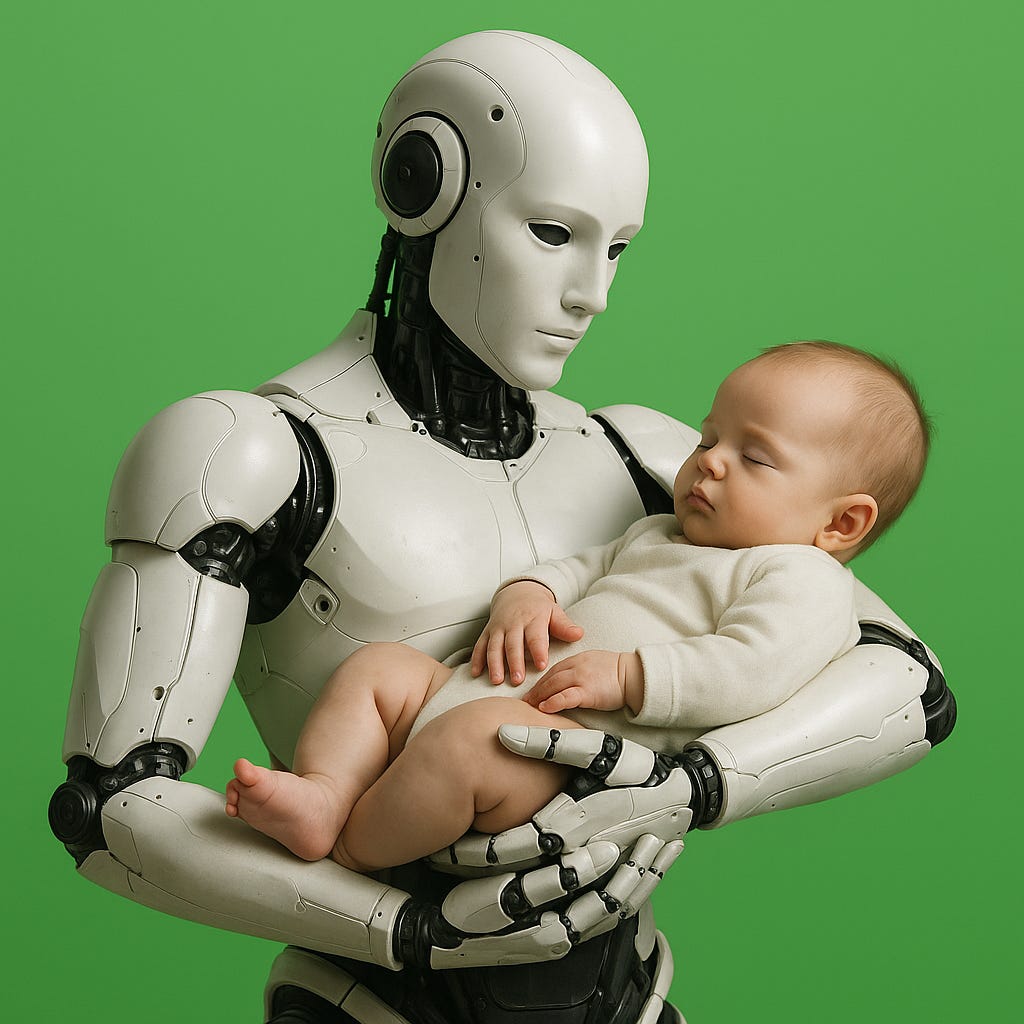Generation Beta & The Catastrophic Gap.
It's not a different mindset - it's a different universe.

It’s a generation that was born while watching their parents use ChatGPT when asking questions.
It’s a generation where AI customer service is the norm.
It’s a generation where robo-taxis are going to be everywhere when they’re older.
It’s Generation Beta (Born 2025+) & they’re up for a big surprise. Previous generations always faced a generational gap. Grandfathers mocked fathers for using computers, for instance.
This is not the same as their is a main aspect that changes this entire narrative - The Social Aspect.
We used computers. But we were still surrounded by people.
We used Uber. But we still received a human driver.
This upcoming generational shift eradicates the human social element. That is the problematic aspect that we will be suffering when trying to understand Generation Beta.
Generation Alpha and the Millennial Gap
Generation Alpha (born 2010-2024) thinks they're tech-savvy. They're not. They're just consumers.
Gen Alpha uses TikTok. Generation Beta will have TikTok created specifically for them by AI algorithms that know them better than they know themselves.
Gen Alpha asks Siri questions. Generation Beta will have conversations with AI that feel more natural than talking to their siblings.
The gap between Millennials and Gen Alpha was about device usage. The gap between Gen Alpha and Gen Beta will be about reality perception.
Millennials remember a world before the internet. Gen Alpha remembers a world before AI. Generation Beta? They won't remember a world where humans were necessary for most interactions.
That's the terrifying part.
The Most Changing Technologies
Three technologies are rewriting the social contract for Generation Beta:
AI Customer Service: By 2025, 95% of all customer interactions will be handled by AI. Generation Beta won't know what it's like to speak to a confused human representative who actually cares about solving your problem.
Robo-Taxis: Forget about chatting with Uber drivers about their life stories. Generation Beta will travel in silent, efficient pods. No human connection during transit.
AI Personal Assistants: These won't be the clunky Alexa responses we deal with today. Generation Beta will have AI companions that understand context, emotion, and personal history better than their best friends.
The pattern? Every technology is removing the beautiful inefficiency of human interaction.
The Dependency on AI
Here's the reality check: 77% of devices already feature some form of AI, yet only 33% of consumers think they're using AI platforms while actual usage is 77%.
We're already dependent. We just don't realize it.
Nearly 1.8 billion people use AI globally, but here's the kicker—65% of AI users are Millennials or Gen Z. The older you get, the less you rely on AI.
Generation Beta will flip this completely.
By the time they're teenagers, AI won't be a tool they use—it'll be the invisible infrastructure of their entire existence.
80% of companies will use AI-powered chatbots by 2025, which means Generation Beta's first words might be to an AI assistant, not their parents.
They'll grow up thinking this is normal.
The Problem We're Creating
We're optimizing for efficiency and losing the beautiful messiness of human connection.
Generation Beta will be the first humans who don't understand why you'd want to talk to a cashier instead of using self-checkout. They won't get why you'd call customer service when the chatbot works faster.
They'll be incredibly efficient. They'll solve problems quickly. They'll have access to infinite information.
But they'll struggle with the one thing that makes us human: connecting with other flawed, irrational, beautifully imperfect people.
And honestly? We're creating this problem because we're too lazy to wait in line, too impatient to train customer service reps properly, and too comfortable letting algorithms decide what we want.
Generation Beta isn't the problem. We are.
The question isn't whether they'll adapt to an AI world—they will, perfectly. The question is whether they'll still know how to be human in it, and how we will take it.

